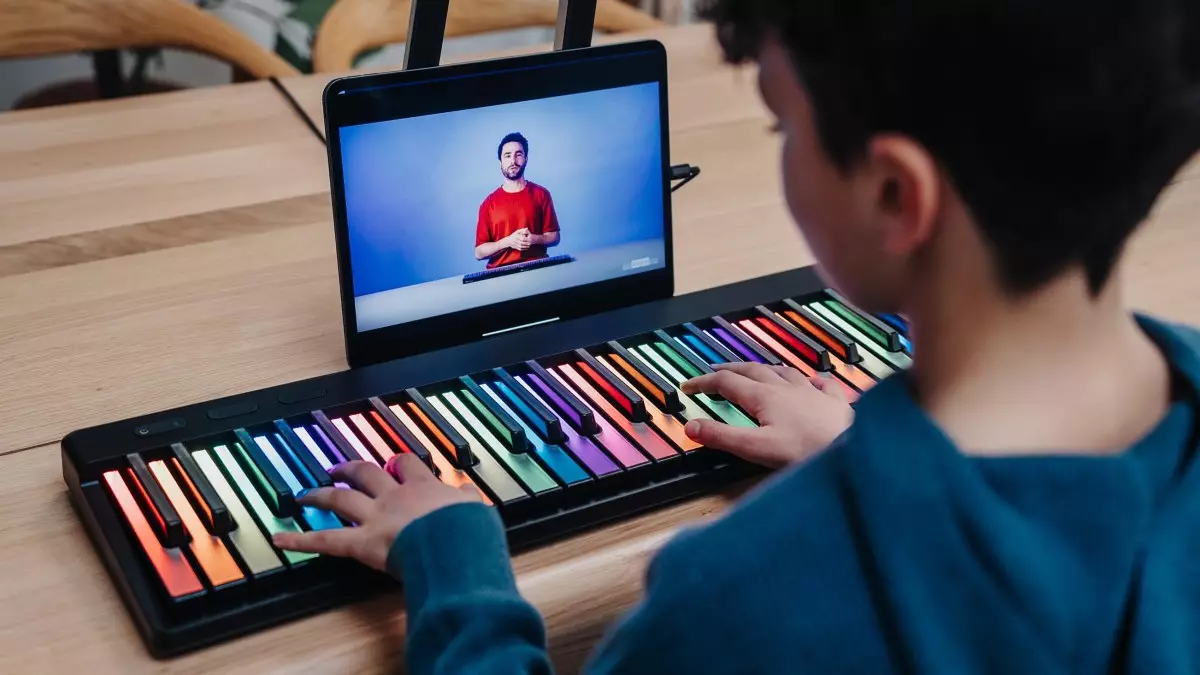On Thursday, Roli unveiled its latest advancement in music technology at the NAAM audio show held in Anaheim. The new product, simply titled Roli Piano, represents a significant evolution in the company’s educational tool lineup, particularly following its previous releases, such as the Roli Airwave and Piano M. In a notable enhancement, the Roli Piano expands the key count from the previous model by over twofold, presenting a total of 49 keys that aim to enrich the playing experience for budding musicians.
In essence, the Roli Piano stays true to its design philosophy, with features reminiscent of its predecessor. It continues to utilize illuminated MIDI keys that synchronize seamlessly with an instructional application accessible via smartphones or tablets. This interactive learning model, which combines physical practice with digital guidance, enhances the educational process, granting students a more engaging way to acquire musical skills. The added dimension of the Roli Airwave, which includes hand tracking technology for gesture-based sound production, underscores Roli’s commitment to blending hardware and software innovation—a characteristic that remains vital in today’s music technology landscape.
One of the standout aspects of the Roli Piano is its pricing strategy. At $599, it positions itself as a premium offering in the educational music space, reflecting its advanced features and capabilities. This price point is notably more than double that of the Piano M, which retails for $249. However, Roli is introducing the larger model at a promotional price of $399 as part of a limited-time ‘super early bird special.’ This pricing strategy may attract early adopters and educators keen on integrating innovative tools into their teaching methods.
A notable highlight in this product launch is the introduction of the Piano AI Assistant, a pioneering application of generative AI within the music education sector. Marketed as “the first step in using generative AI to enhance the learning process,” this assistant serves a dual purpose: it acts as an instructional aid while also infusing elements of music theory into the learning experience. The integration of AI not only modernizes music education but also aligns with current trends in technology, capturing the interest of tech-savvy learners and educators alike.
Roli’s renewed focus on educational products signifies a strategic pivot following its bankruptcy filing in 2021. Historically known for creating innovative, though somewhat niche, instruments like the Seaboard and Blocks, the company recognizes that the demand for music education tools holds vast potential. By redirecting its efforts toward accessible music learning solutions, Roli seeks to carve out a more prominent position in a market that is expanding rapidly as more individuals seek to learn how to play instruments in a digital age.
As Roli embarks on this new journey, the potential for the Roli Piano to reshape music education is substantial. With its combination of innovative technology, interactive learning experiences, and a clear strategy to engage a broader audience, Roli demonstrates a commitment to not just creating instruments, but also cultivating the next generation of musicians. This ambitious approach, driven by educational needs and technological advancements, positions Roli not just as a music tech company, but as a catalyst for accessibility in music education.

